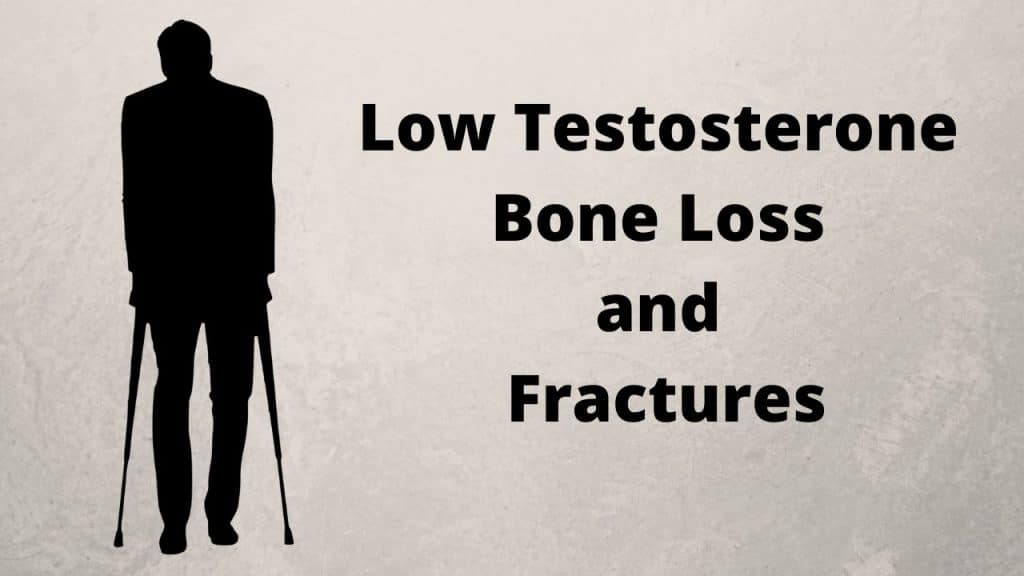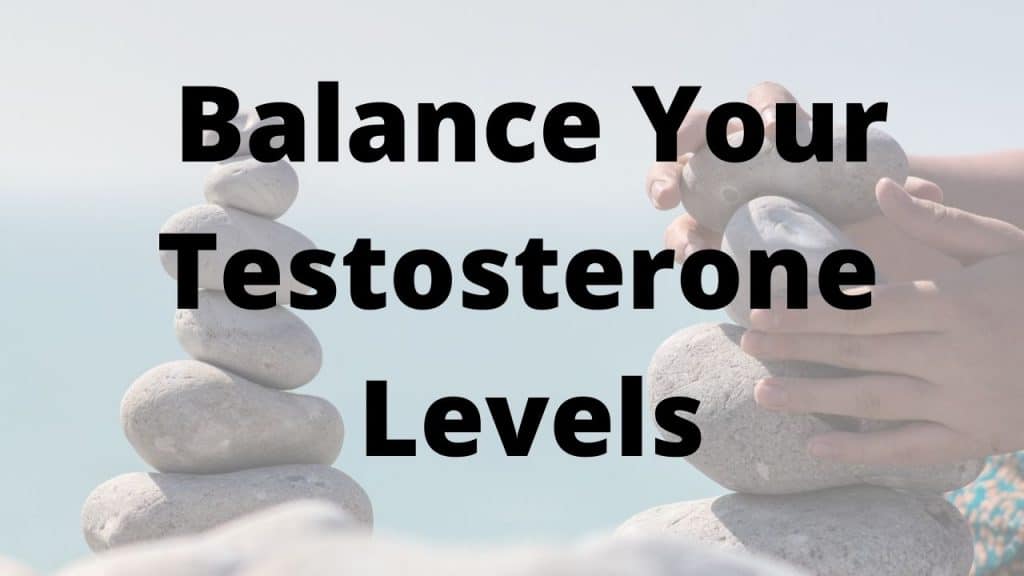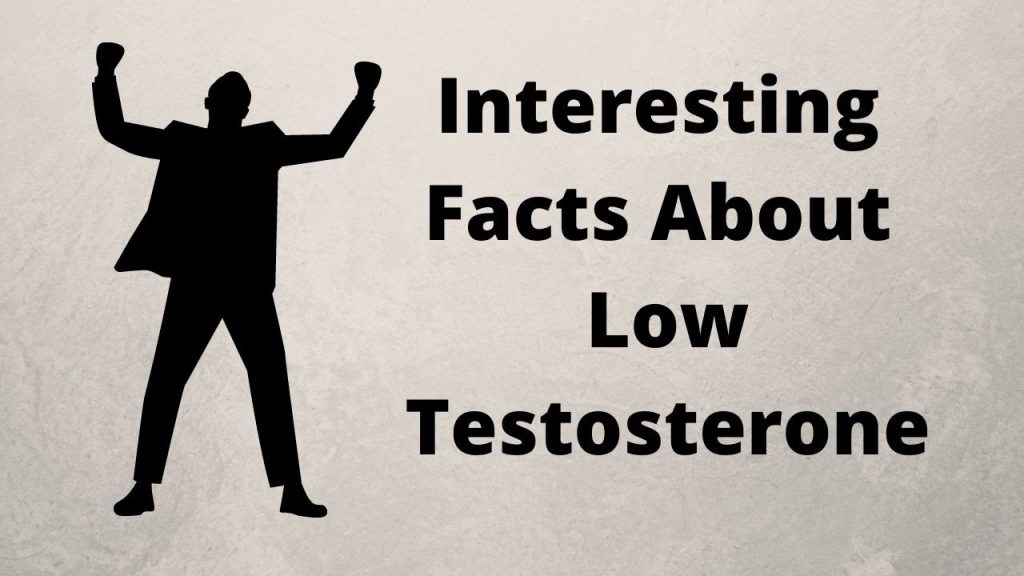Low Testosterone – Bone Loss and Fractures
Men can start to experience osteoporosis as soon as they enter their 30s.
Osteoporosis is the deterioration of bone tissue that results in fragile bones, often leading to fractures and possible loss of independence.
Low testosterone plays a key role in osteoporosis because it reduces the body’s ability to produce new bone cells and to repair old ones.
The result?
Bones become weaker and more brittle over time.
Low Testosterone – Bone Loss and Fractures is a common occurrence in men
It is surprising to hear that osteoporosis can occur in a man’s 30s, but it is not unheard of.
Osteoporosis has been called “the silent disease” because you might have no symptoms until your bones begin to break from even the smallest fall or accident.
Osteoporosis increases your risk for serious fractures and injuries.
Having low bone density can also lead to a loss of independence due to fear of falling or being unable to get around without help from another person.
It is hard to believe that bone loss can be caused by low testosterone, but it is an unfortunate fact.
While osteoporosis does affect women more often than men, that doesn’t mean you shouldn’t take care of your bone health if you are a man experiencing osteoporosis symptoms.
How does Osteoporosis cause bones to become weaker and more brittle over time
Osteoporosis occurs when there is a decrease in the number of osteoblasts – cells that make new bone – and an increase in osteoclasts – cells that break down bone.
This leads to a decrease in the rate of new bone being created.
The osteoclasts break down old bone, but osteoblasts have to create new bone out of calcium and other minerals.
When the breakdown is greater than the repair, bones become weaker over time.
Osteoporosis can occur in any bone, but osteoblasts and osteoclasts are found mostly in the long bones such as those of the legs and arms.
Symptoms include:
– Back pain.
– Loss of height over time as a result of compression fractures.
– Swayback or stooped posture.
– Bone pain or tenderness.
How can Osteoporosis lead to fractures or loss of independence
One of the most devastating parts of osteoporosis is not fractures. But is the loss of independence that comes from these fractures.
95% of all hip fractures come from falls.
Over 300,000 adults over 65 are hospitalized from hip fractures every year.
The risk of death one year after a hip fracture can range from 12% to 37% in older adults.
People with osteoporosis can lose their independence in a number of ways:
– difficulty walking, climbing stairs, or getting out of bed.
– fear of falling and breaking a bone which leads to decreased activity levels.
– loss of height over time from compression fractures that cause the vertebrae to collapse on each other, which reduces height and makes it difficult to stand up straight.
– osteoporotic compression fractures can cause spinal deformity, which results in shorter stature.
– osteoporosis affects the physical appearance of a person’s face with loss of volume for example in sunken cheeks. Osteoporosis also causes skeletal deformities such as a curvature of the spine.
How does low testosterone affect osteoporosis
Low testosterone can cause osteoporosis to occur in men.
The leading causes of osteoporosis are age, heredity, and sex hormones – estrogen for women or testosterone for men.
Osteoporosis occurs in Men who have Low Testosterone – Bone Loss and Fractures are the likely result..
Research has begun to emerge that links osteoporosis in men with low testosterone levels.
One of the main ways low testosterone causes osteoporosis is by reducing osteoblast activity.
Osteoblasts are the cells that help new bone to be created while osteoclasts break down old bone tissue.
When osteoblasts aren’t around, osteoclast activity is increased and more material can leave bones – in this case, calcium from men’s bones which makes them weaker over time.
Another way testosterone affects osteoporosis is by affecting body fat percentage.
Osteoblasts need a certain level of the hormone estrogen to form new bone tissue.
The more fat that’s on your bones the less hormones like progesterone and testosterone can get to osteoblasts.
So, when you carry extra fat around your waistline, osteoporosis becomes more likely because osteoblast activity slows down.
In Conclusion
Testosterone is a male sex hormone that is responsible for masculine characteristics.
Low testosterone can lead to osteoporosis in men, which causes bones to become more brittle and fragile over time.
As a result, osteoporosis patients may suffer from osteoporotic fractures, loss of independence and in some cases death.
If you are concerned about osteoporosis or testosterone therapy for osteoporosis contact your doctor for the appropriate diagnostic tests.
Questions and Answers From Around The Web

Can low testosterone cause brittle bones?
One cause of osteoporosis is low testosterone. Testosterone is a male sex hormone that’s important for a range of body functions. If you have low testosterone levels, this can cause your bone to replace itself too quickly and become fragile, which means you’re more likely to have bone fractures. https://www.healthymale.org.au/mens-health/osteoporosis
How does a testosterone deficiency affect bones?
As men age, and especially around age 70, their bone density decreases. Unlike women, men do not generally go through periods or rapid hormonal change. However, men can develop osteoporosis as a result of low hormone levels in the body, especially low testosterone levels. https://www.spine-health.com/conditions/osteoporosis/testosterone-deficiency-and-osteoporosis
Does low testosterone affect bone density?
There is a high incidence of osteopenia in men with low levels of testosterone, and these patients are at significant risk for osteoporosis, new research suggests. And the longer they are hypogonadal, the greater the risk. https://www.medscape.com/viewarticle/846022
Does testosterone affect your bones?
Testosterone is an important hormone for both bone gain and maintenance in men. Hypogonadal men have accelerated bone turnover and increased fracture risk. In these men, administration of testosterone inhibits bone resorption and maintains bone mass. https://www.hindawi.com/journals/jos/2011/240328/
Does testosterone help with bone loss?
Findings Testosterone treatment of older men with low testosterone increased volumetric trabecular bone mineral density of the lumbar spine and estimated bone strength significantly compared with placebo. https://jamanetwork.com/journals/jamainternalmedicine/fullarticle/2604138
Does testosterone heal bones?
Testosterone is a Potent Accelerator of Fracture Healing: Early Structural Reconstruction and Improved Biomechanical Stability. https://www.thieme-connect.com/products/ejournals/abstract/10.1055/s-2003-42285
Does testosterone protect bone density?
The effects of testosterone in maintaining bone mineral density (BMD) in elderly men are well known and have been summarized by previous authors. Thus, androgens take part in building the skeleton of young men and help to prevent bone loss in the elderly men. https://www.ncbi.nlm.nih.gov/pmc/articles/PMC5036835/
What 3 bones are most affected by osteoporosis?
Osteoporosis-related fractures most commonly occur in the hip, wrist or spine. Bone is living tissue that is constantly being broken down and replaced. Osteoporosis occurs when the creation of new bone doesn’t keep up with the loss of old bone.
https://www.mayoclinic.org/diseases-conditions/osteoporosis/symptoms-causes/syc-20351968



Pingback: 9 Signs Of Low Testosterone - Stop Feeling Old